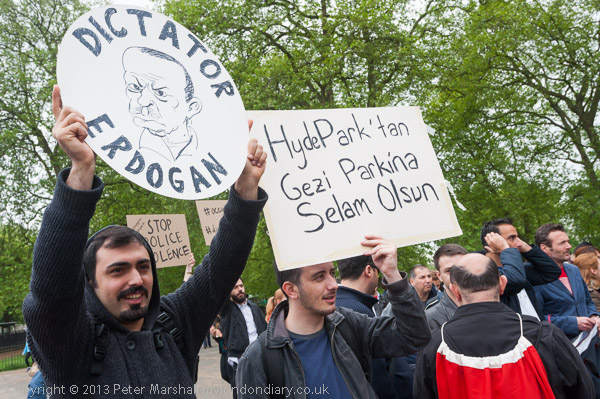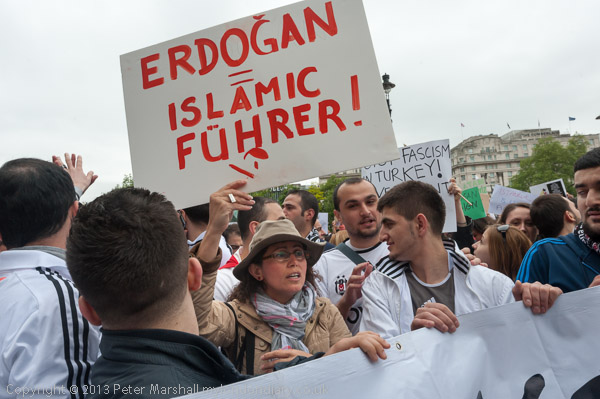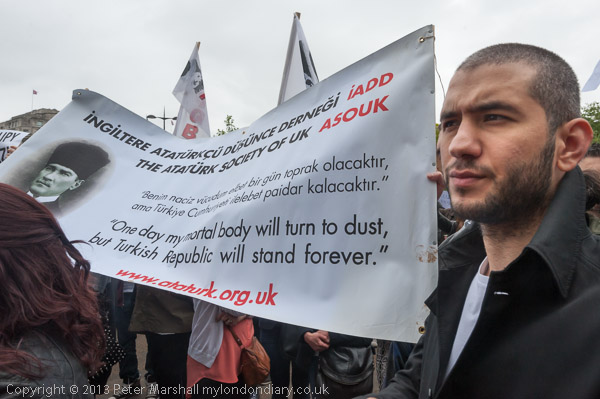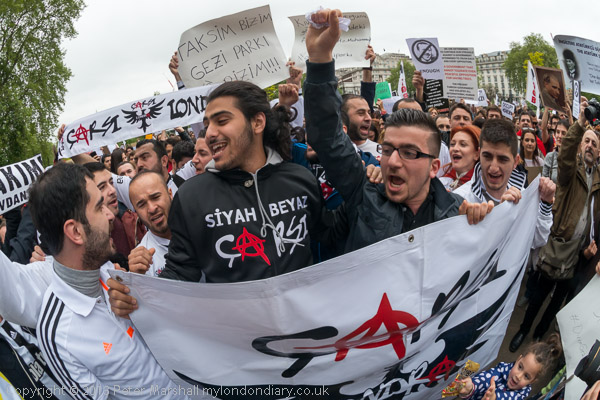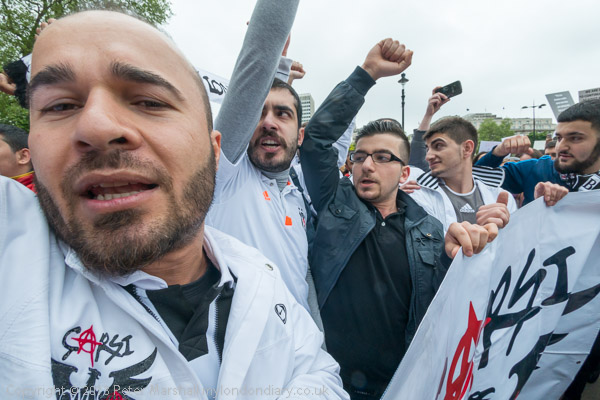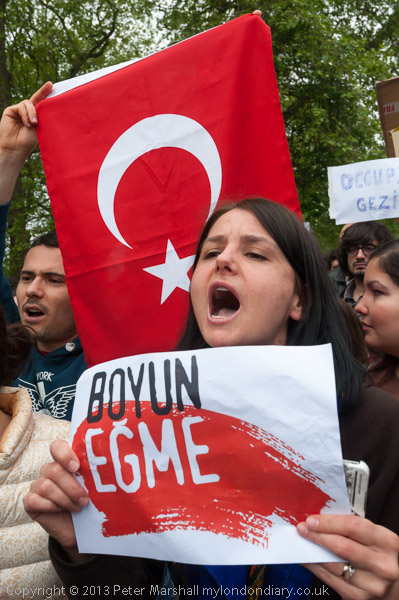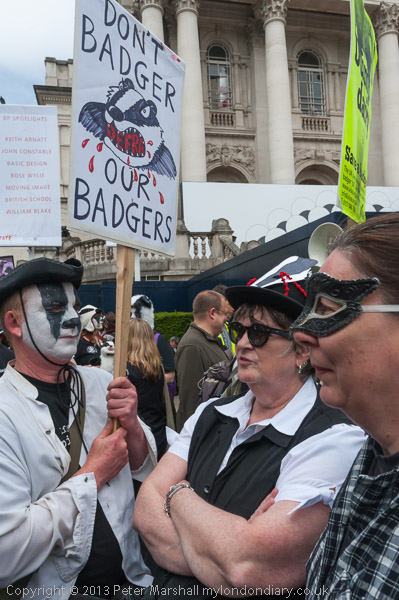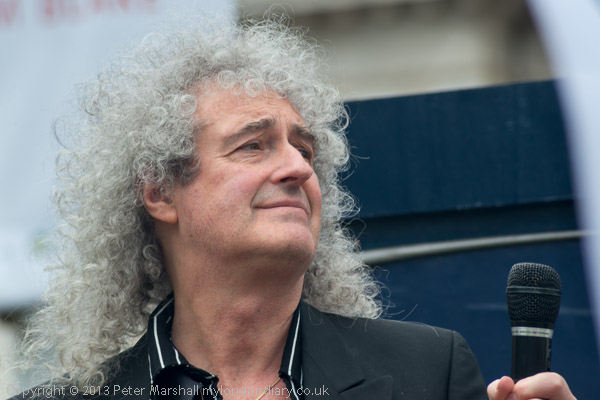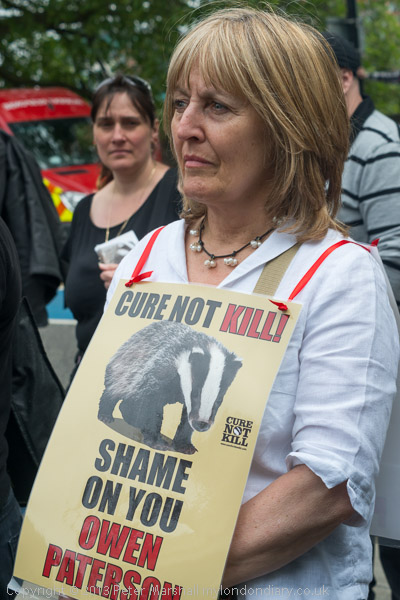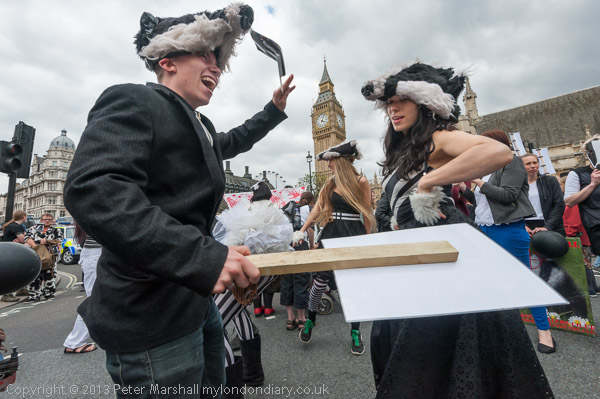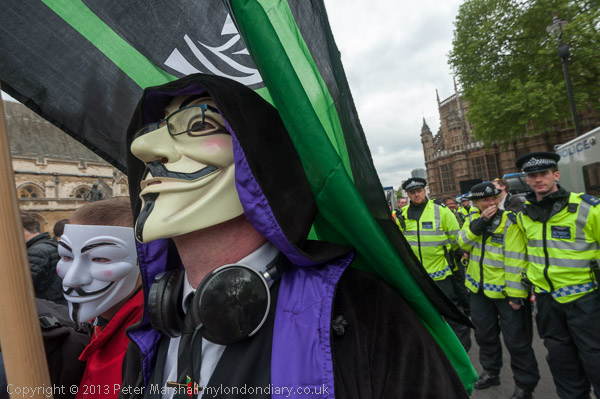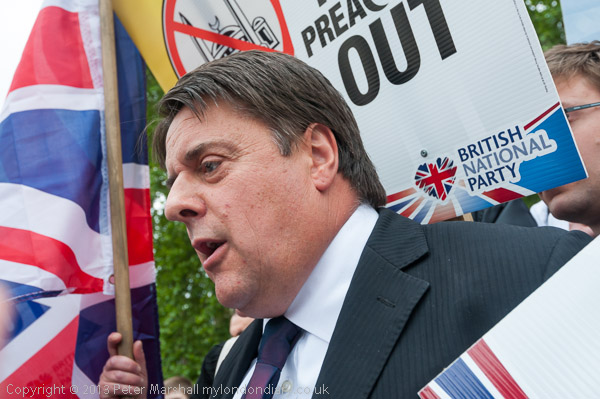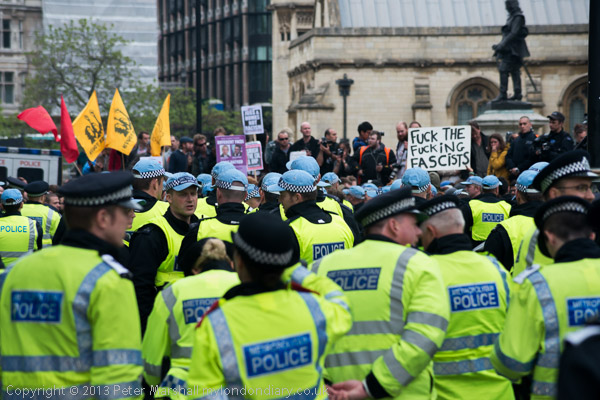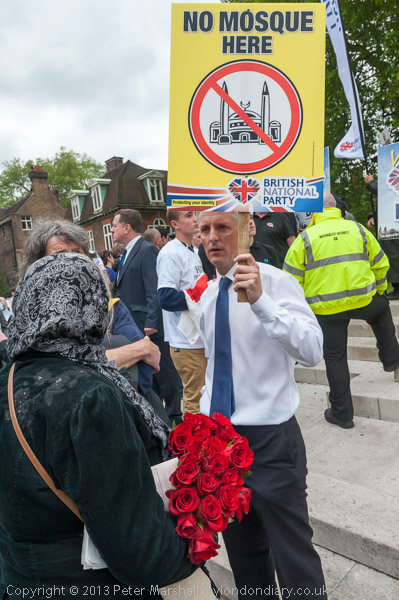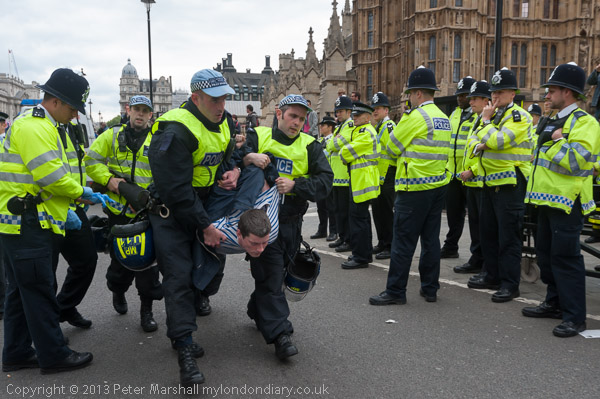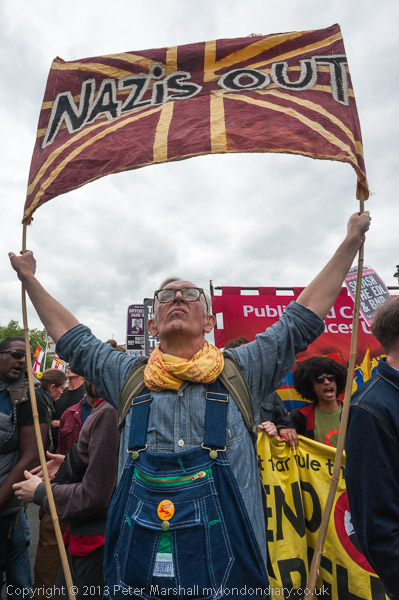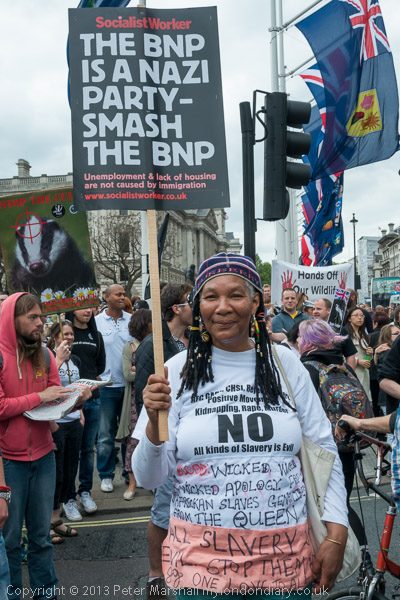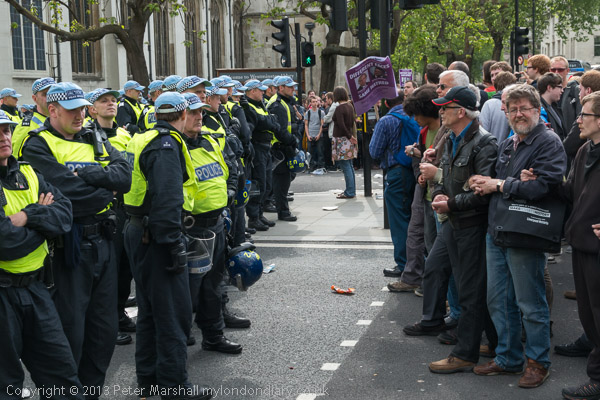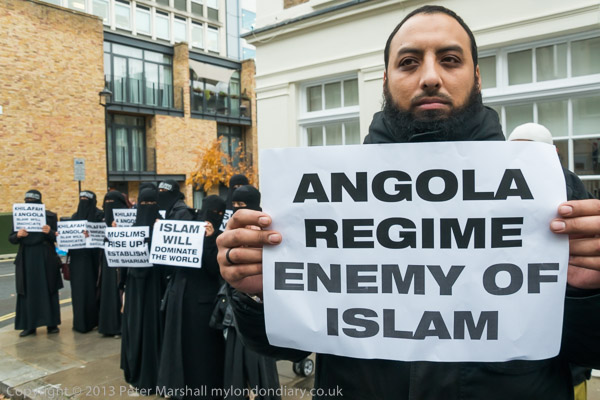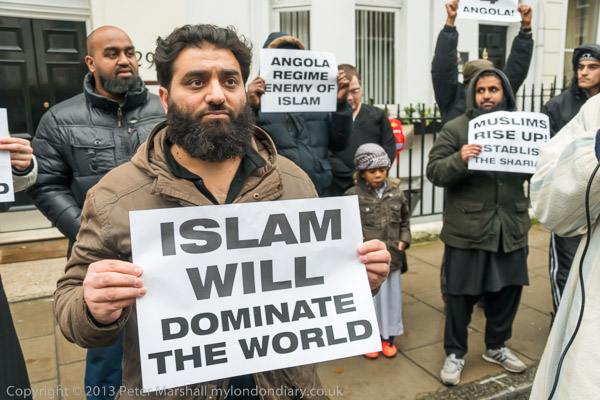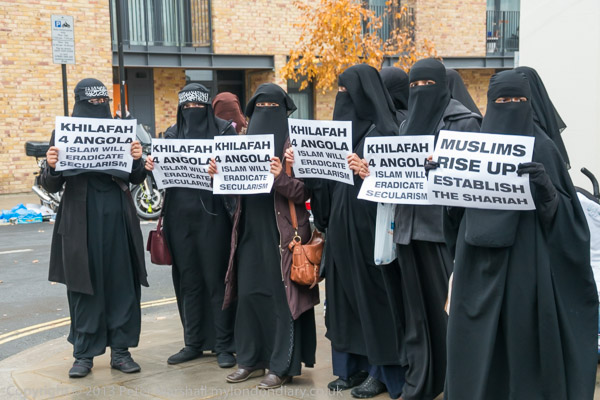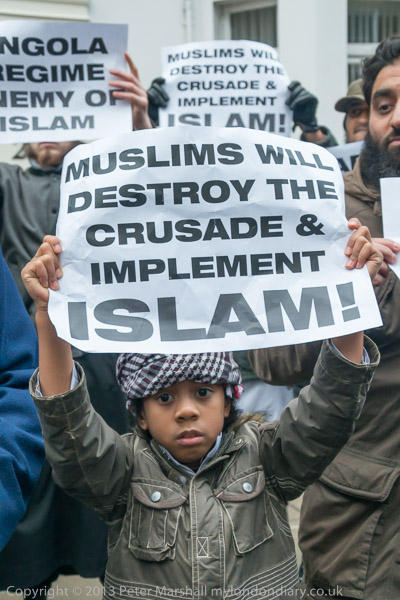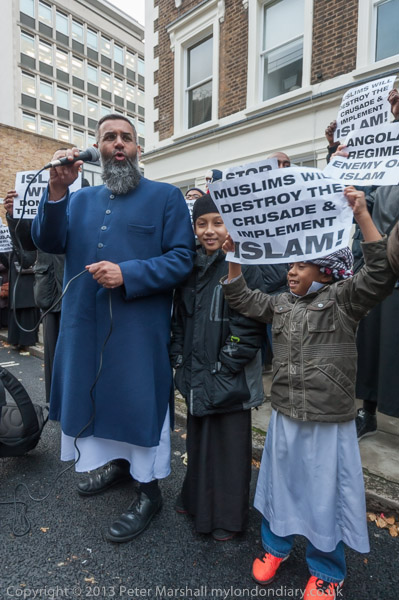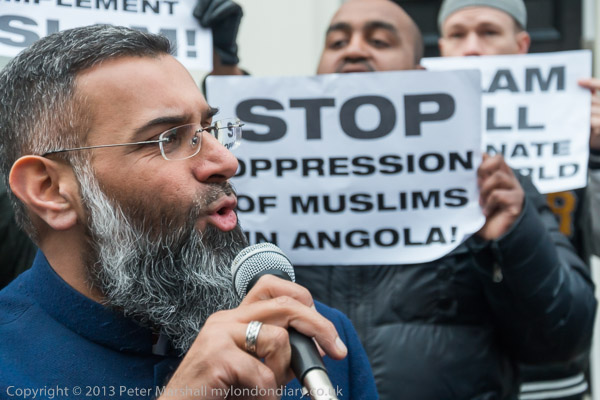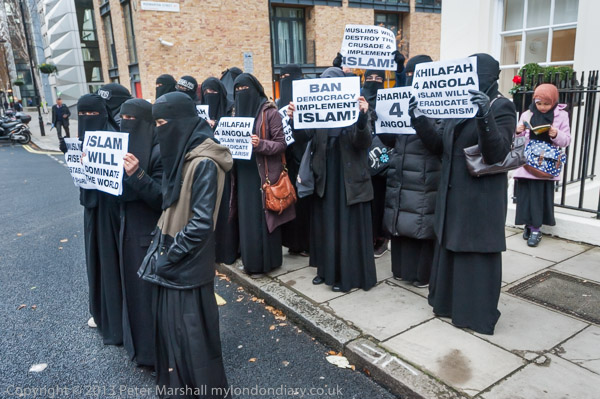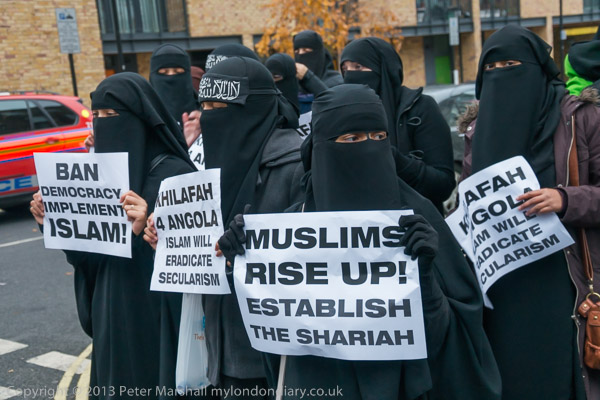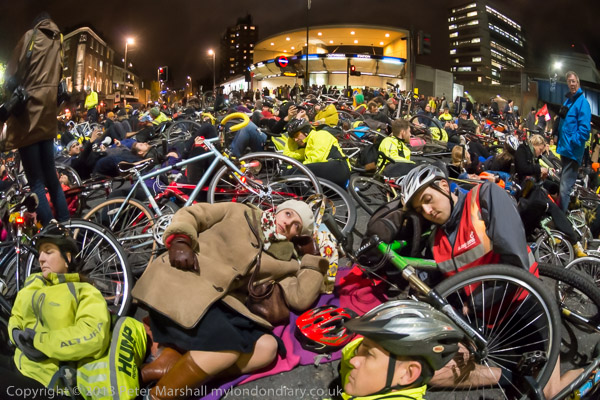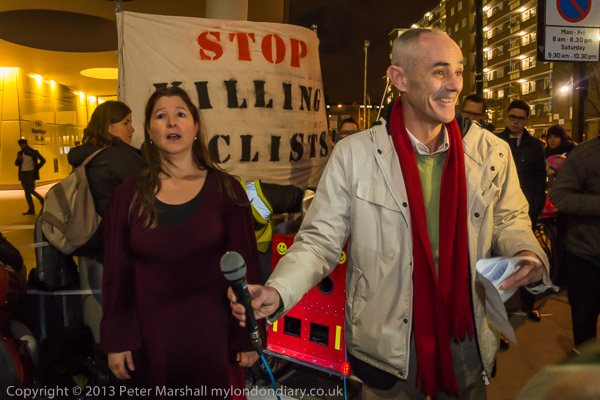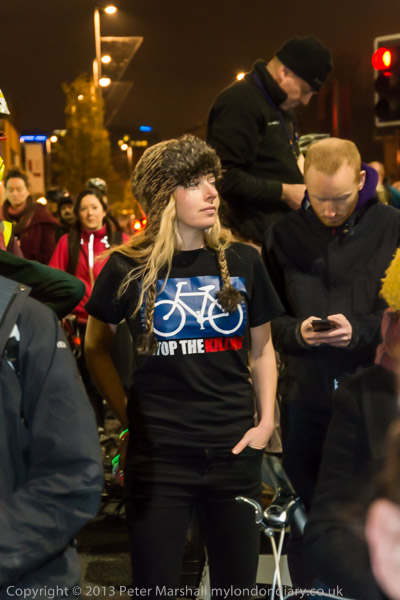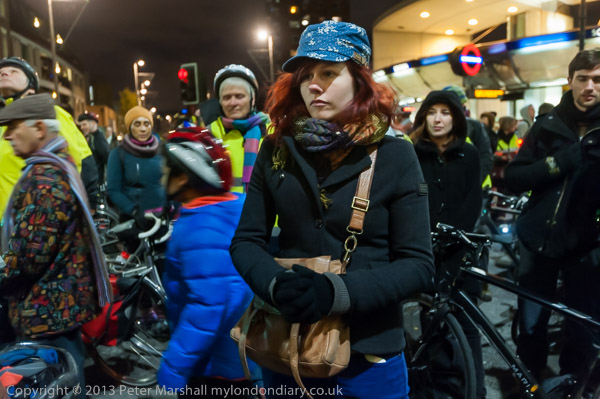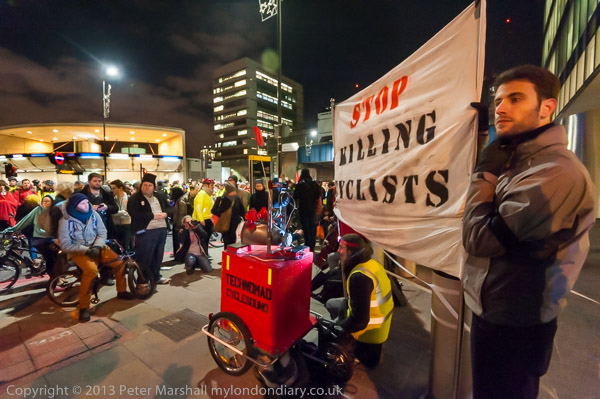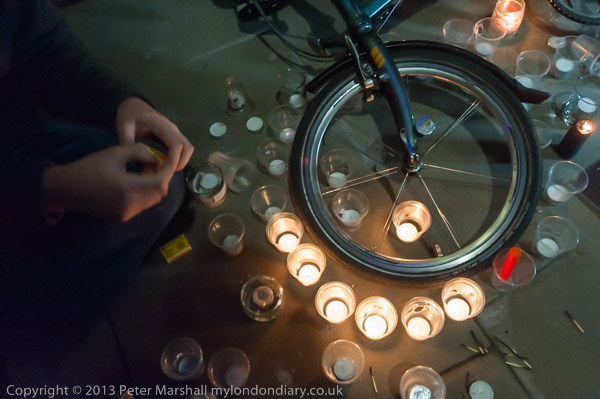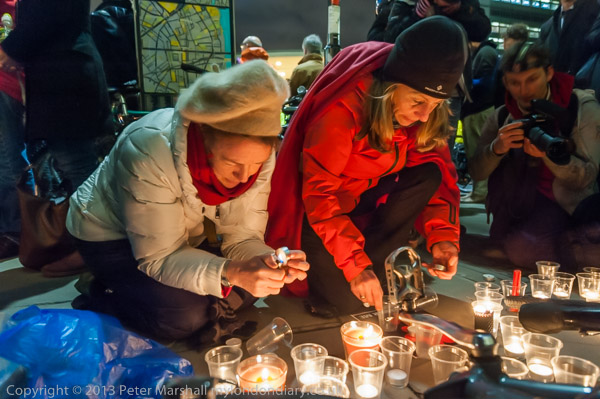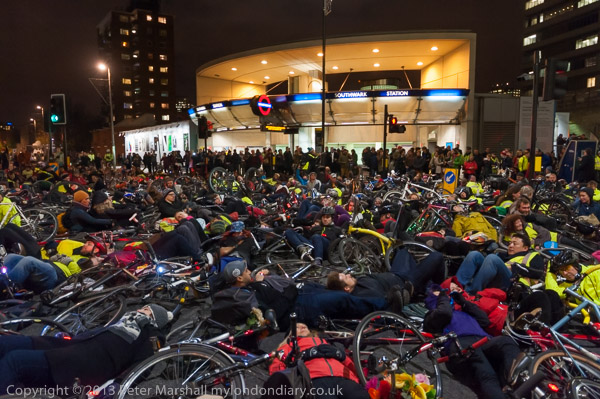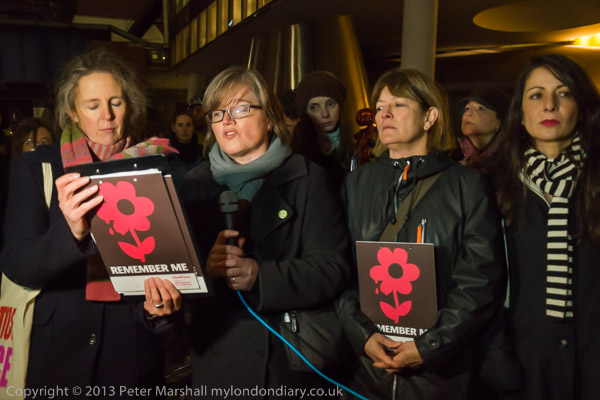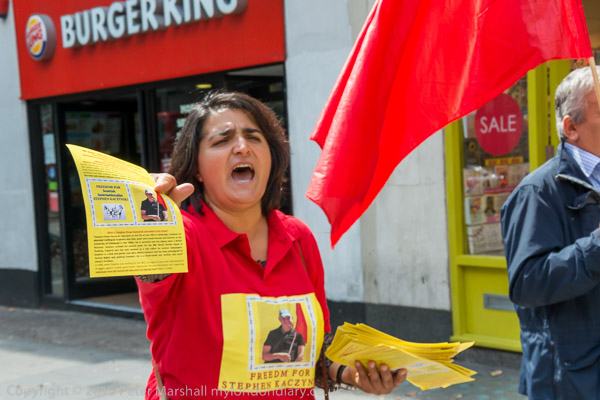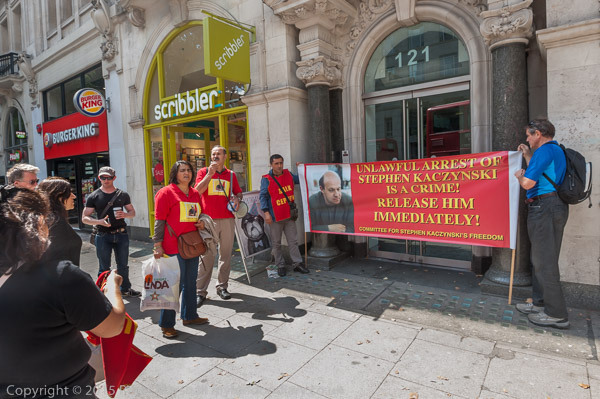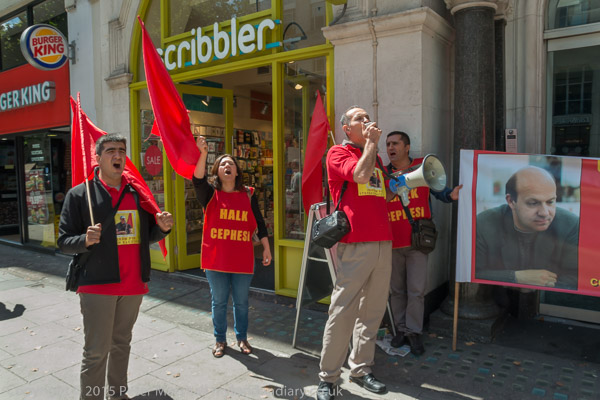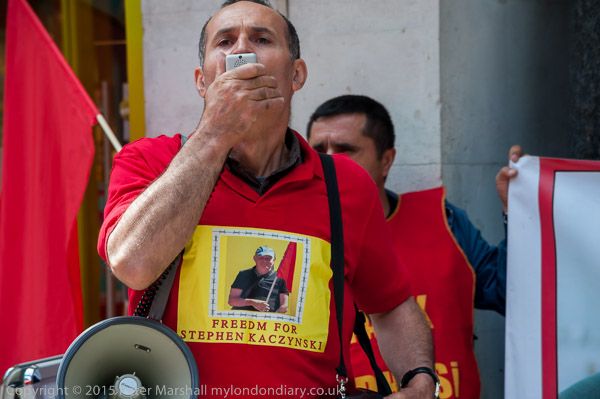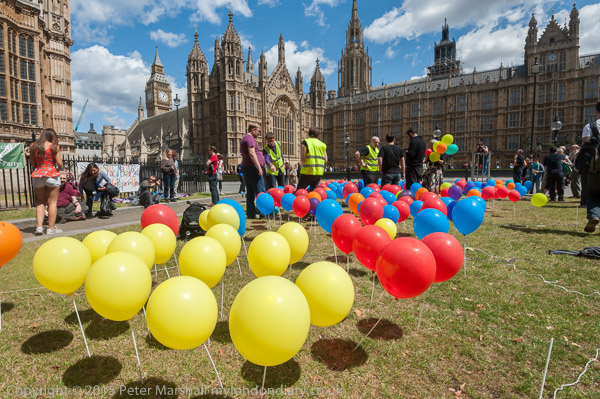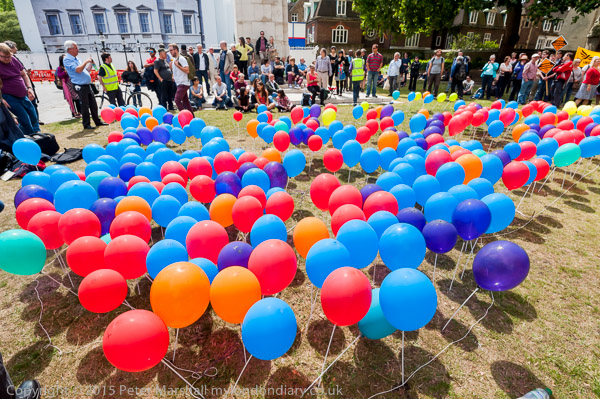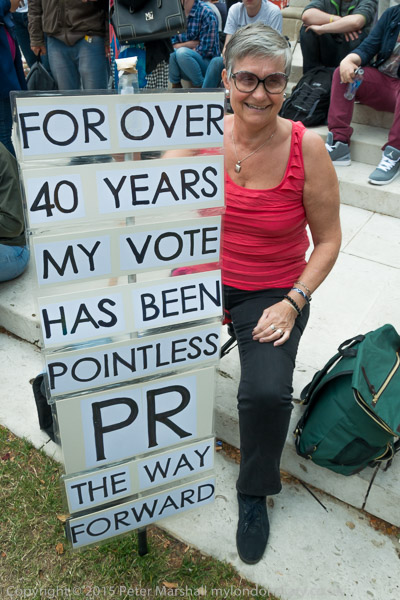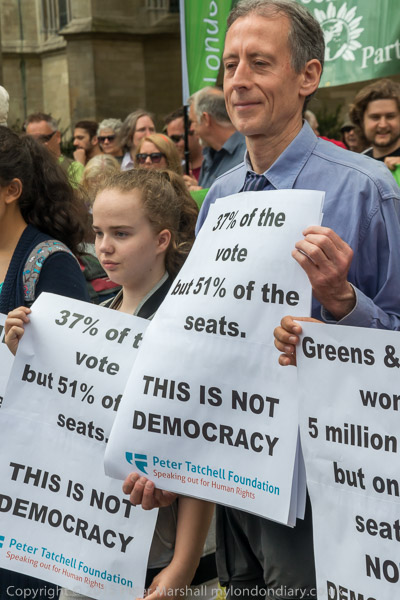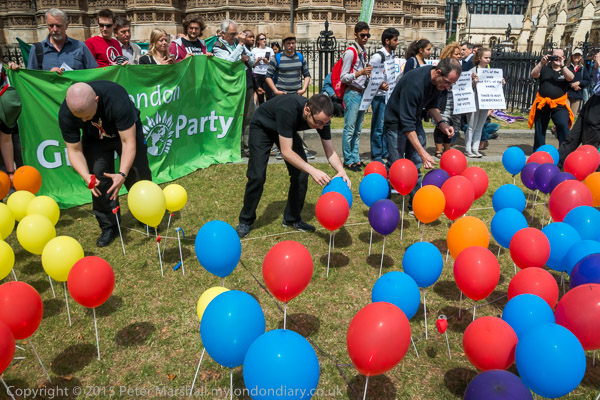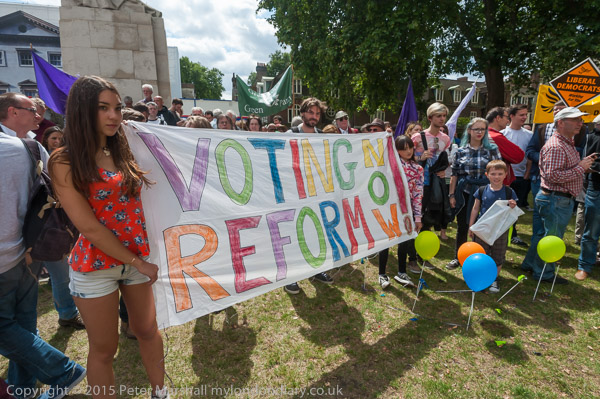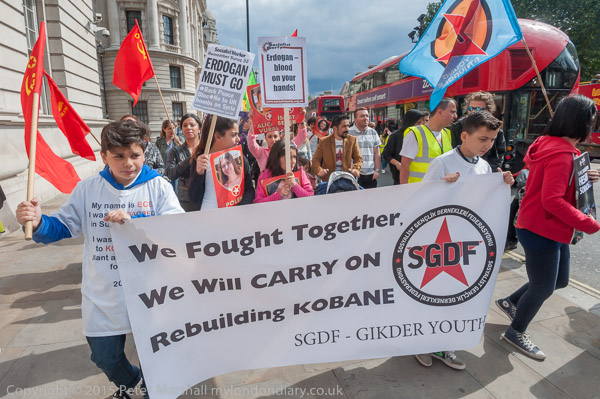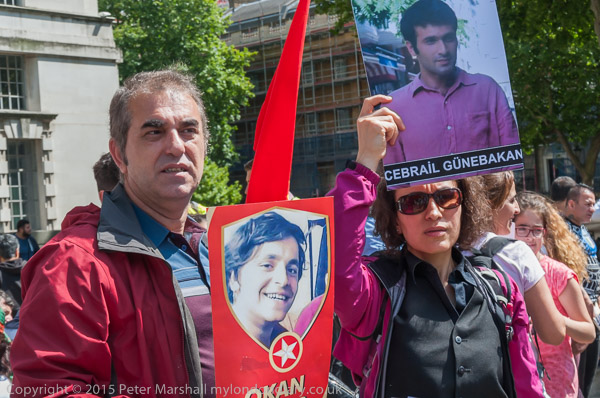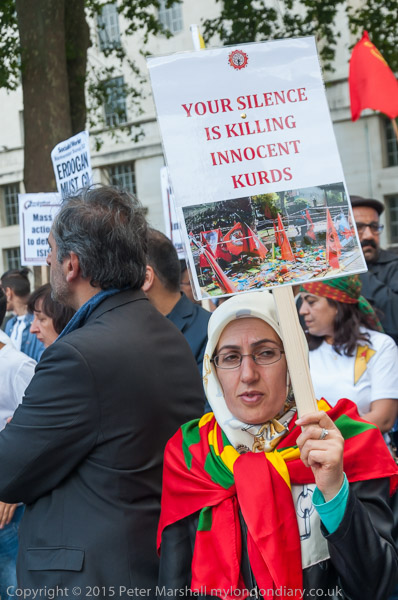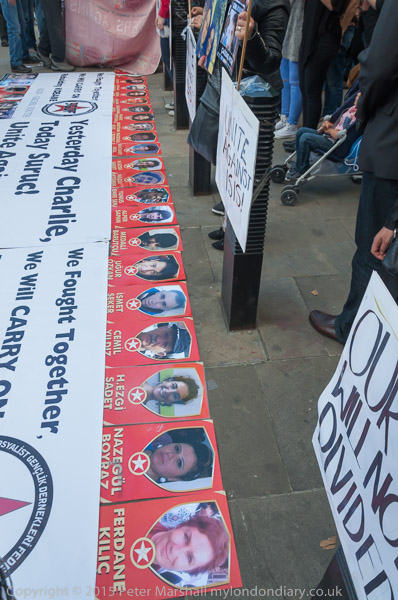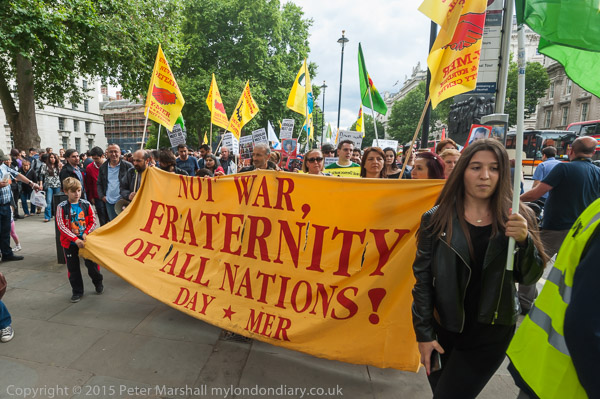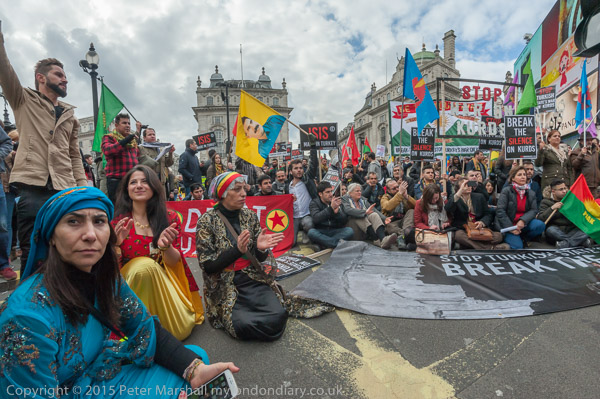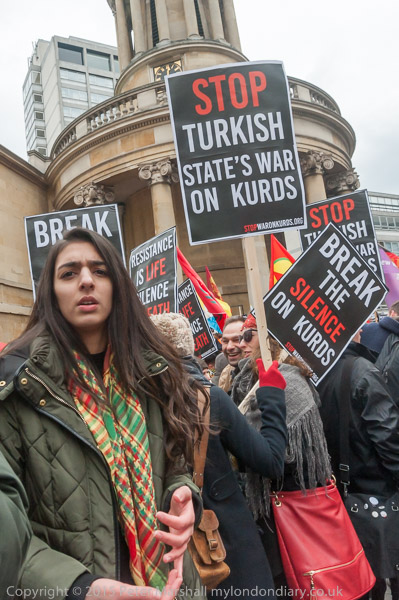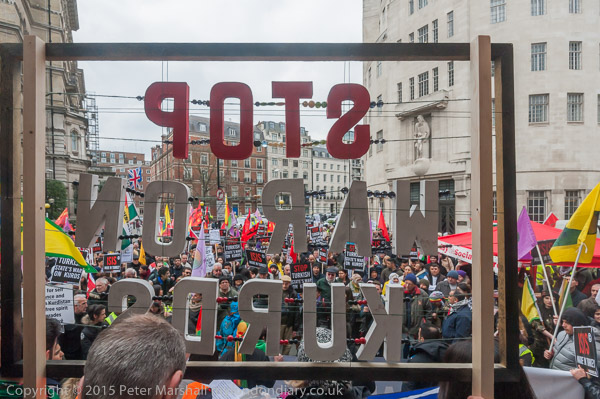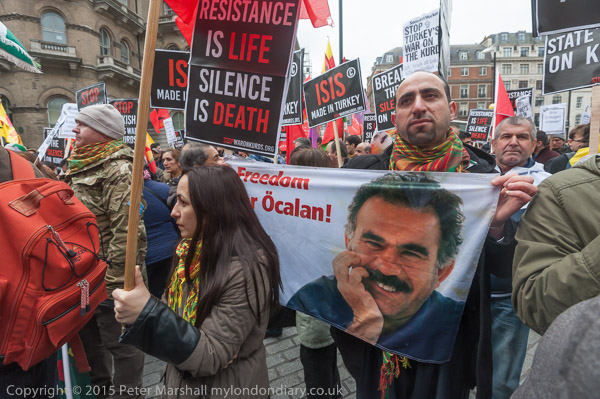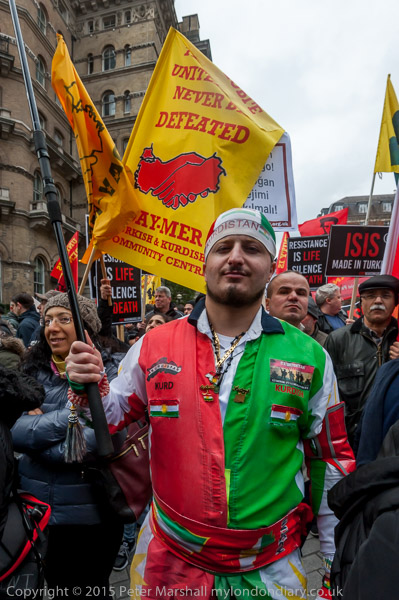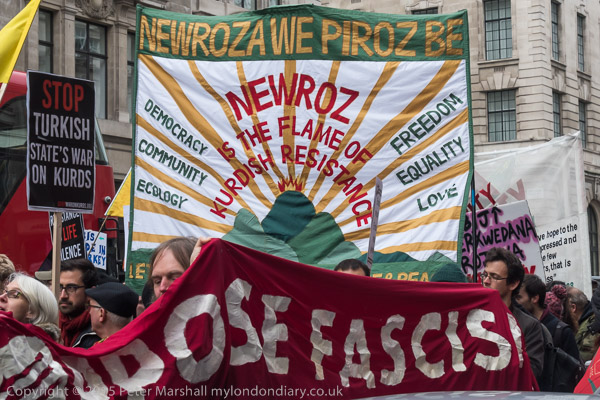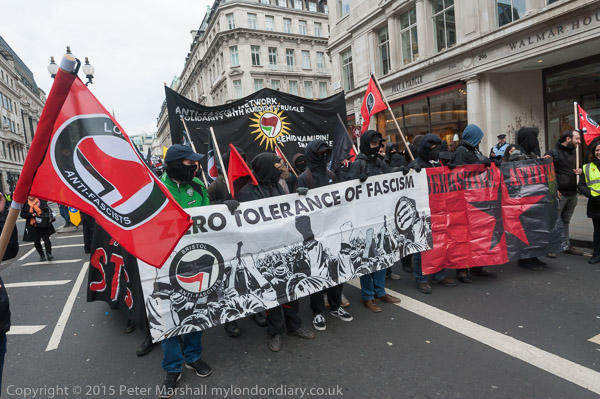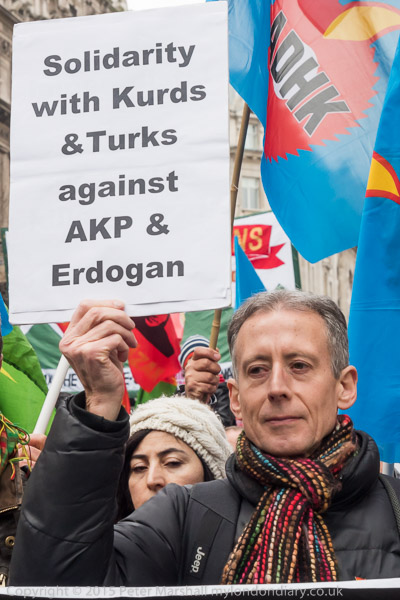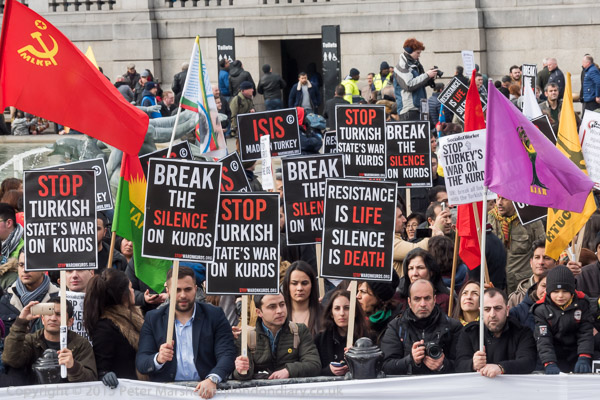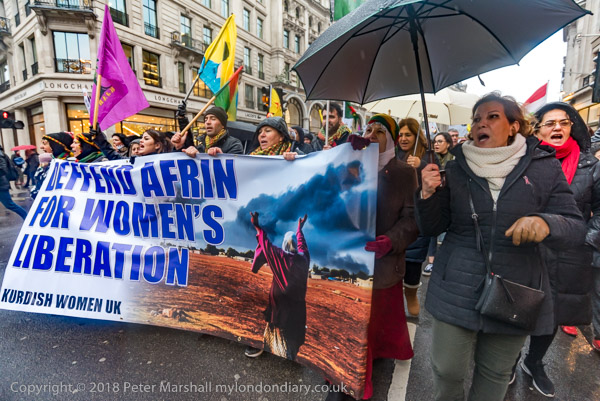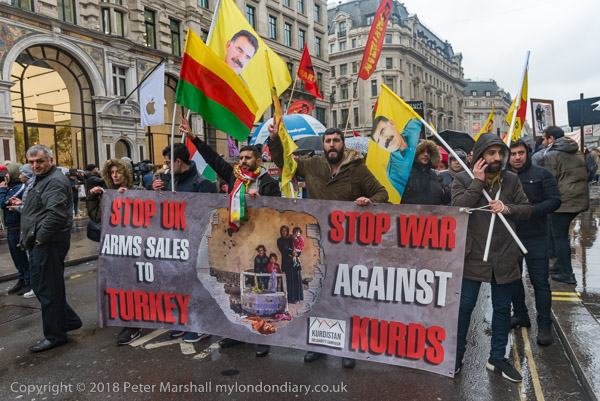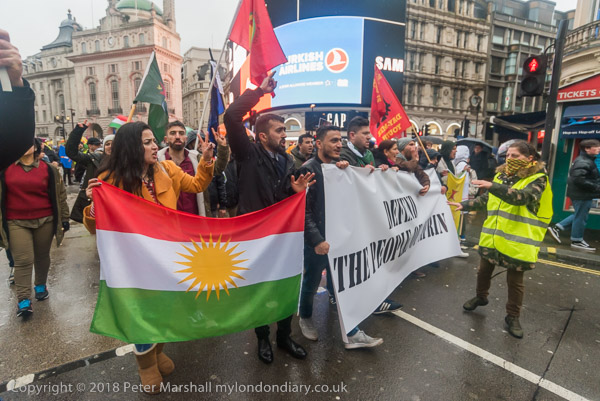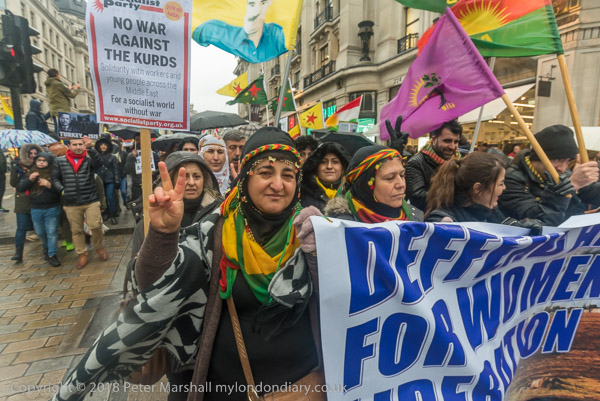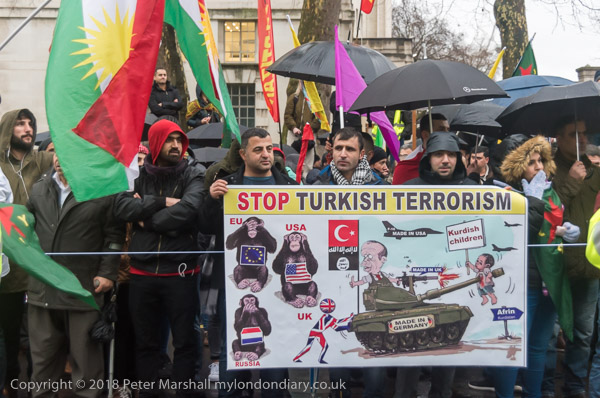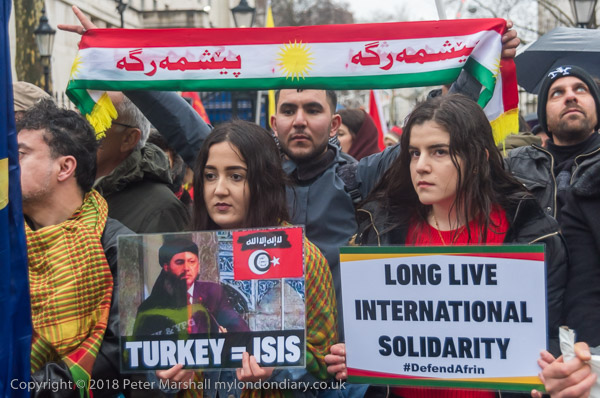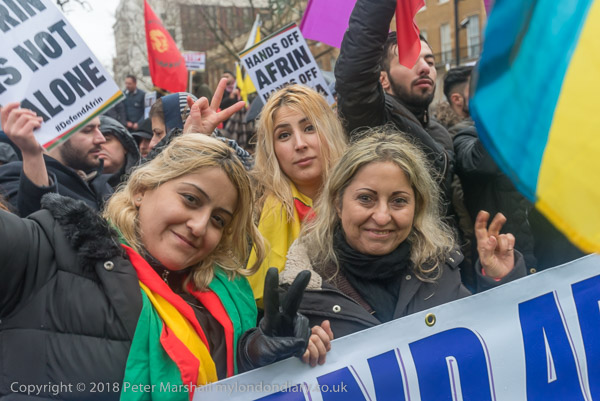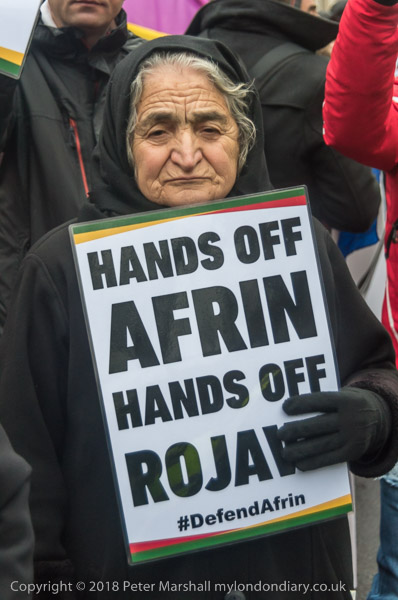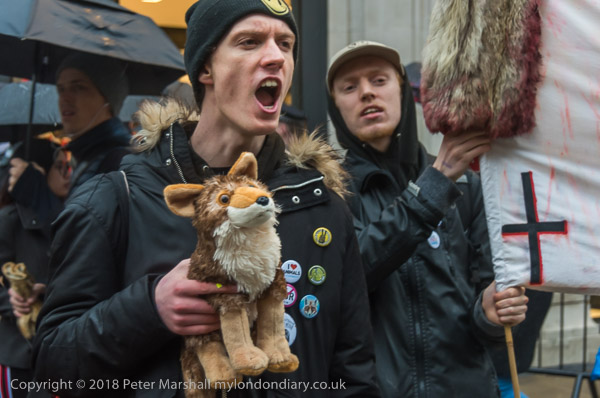Muslim Extremists March For Sharia Zones: Today Anjem Choudary is due to be sentenced after having been found guilty of directing and encouraging support for the terrorist organisation al-Muhajiroun banned in the UK in 2005. Choudary whose home is in Ilford could face a life sentence.
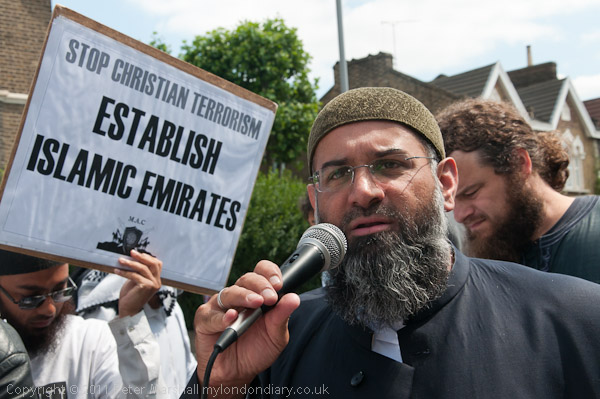
The prosecution came about after a joint investigation by MI5, Scotland Yard, the New York Police Department, and Canadian police collecting evidence. His home had been bugged and online events were monitored. Police had been conducting separate investigations into his activities in the UK, US and Canada and came together leading to his trial at Woolwich Crown Court where he and a follower were found guilty last week.
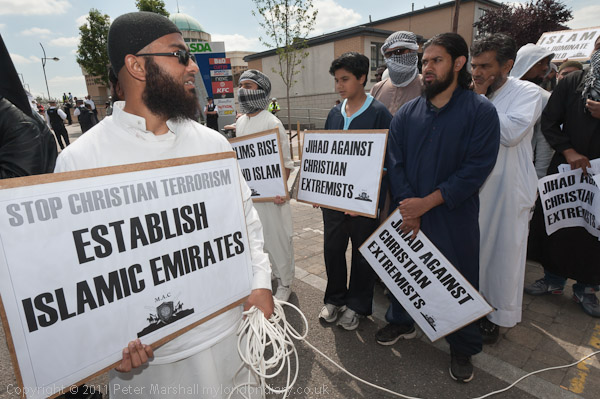
Choudary had been a student of Omar Bakri Muhammad and had helped form the Islamist al-Muhajiroun organisation in Britain in 1996. This was proscribed in the UK in 2005 following the London Bombings, but Choudary carried on his activities under groups with various other names, including Al Ghurabaa, proscribed in 2006, and Islam4UK, banned in 2010.
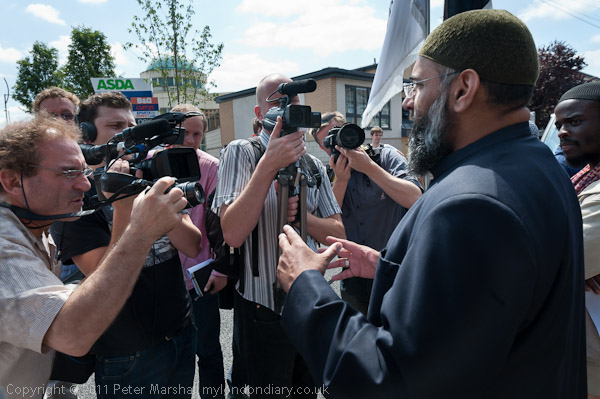
These groups carried out a number of controversial protests to gain wide media coverage, and the East London protest by Muslims Against Crusades on Saturday 30th July 2011 by around 70 men was outnumbered by the press covering it – including me.
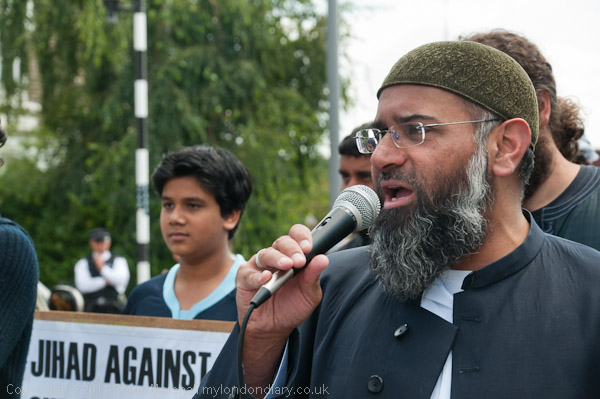
This was one of quite a few events where I photographed Choudary, and it appeared to many of us that Choudary, if not actually encouraged by MI5 was certainly being allowed to continue his activities as a way the authorities could keep tag on Islamist activities in the UK.
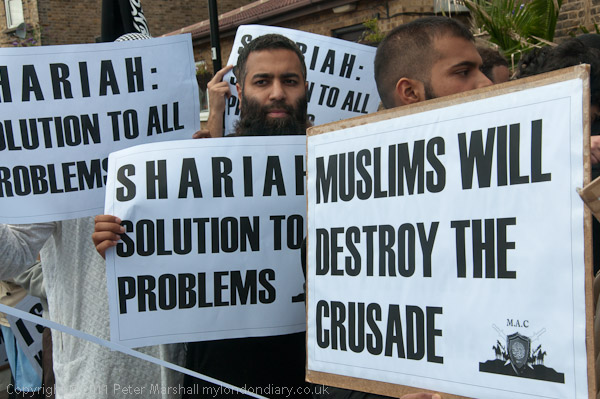
I heard Choudary speaking in public and was sceptical about the claims he made about ‘Muslim Armies’ but a couple of years later ISIS made them reality. And in June 2014 or shortly after, “Choudary pledged allegiance to the Islamic State’s “caliphate,” and its “caliph” (Abu Bakr al-Baghdadi) “‘via Skype, text and phone’ during dinner at a restaurant in London.”
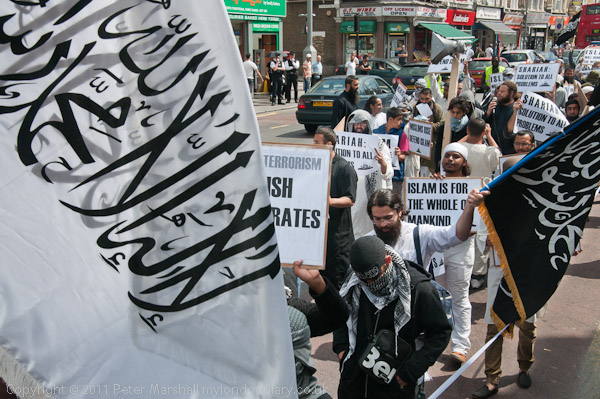
This was a step too far for the British state and in August 2015 he was charged under section 12 of the Terrorism Act 2000 for inviting support of a proscribed organisation and finally convicted in July 2016. He was sentenced to 5 years six months in prison.

He left prison in October 2018, but there were many conditions attached to his release and it was only in October 2021 that he was fully able to resume his campaigning online. The current conviction relates to his actions since then.
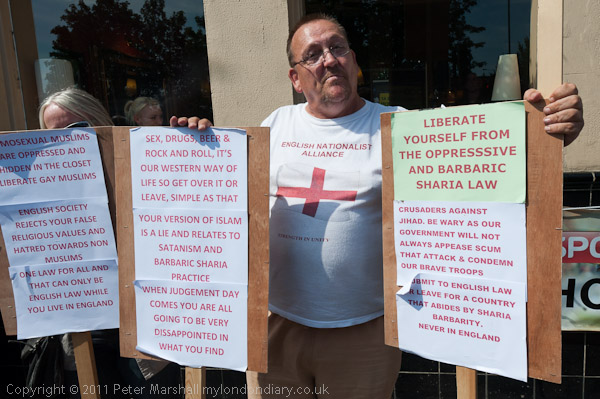
My London Diary has a long account of the march march from Leyton to Walthamstow calling for Sharia Zones by ‘Muslims Against Crusades’, calling for the setting up of Sharia Controlled Zones in the UK which ‘Islamic rules’ would be enforced by Muslims, along with many photographs.

Although the organisers had told the press there would be a thousand marchers, there were well under a hundred. And although the leaflet handed out by the marchers claimed support from a wide range of organisation, as I explained it was in fact “only supported by a very small circle of him and his fellow extremists.” Very few of the Muslims on the streets it went through showed support and rather more made clear that they were opposed.

My report also has some coverage of several small counter-demonstrations by the English Nationalist Alliance and other right-wing groups, some of which were stopped by police. As the march arrived for the final rally there were some offensive shouts by some ENA supporters but their protest was otherwise peaceful.

During the final rally there were some minor scuffles in a large crowd of Muslim youths as some objected to the speeches by Muslims Against Crusades, but police moved in quickly. Some photographers close to the scene had their cameras grabbed or were pushed as they tried to photograph what was happening, but I was some distance away.

Of course there were no Sharia Controlled Zones in London, just a few notices like these put up by this small group which had no effect. But my picture was widely pirated on at least 86 web sites around the world, used by right-wing extremists to spread the myth that such things existed. DCMA requests got some of them taken down, but they just appeared elsewhere.
Much more about the march at Muslim Extremists March For Sharia Zones.
Flickr – Facebook – My London Diary – Hull Photos – Lea Valley – Paris
London’s Industrial Heritage – London Photos
All photographs on this page are copyright © Peter Marshall.
Contact me to buy prints or licence to reproduce.
